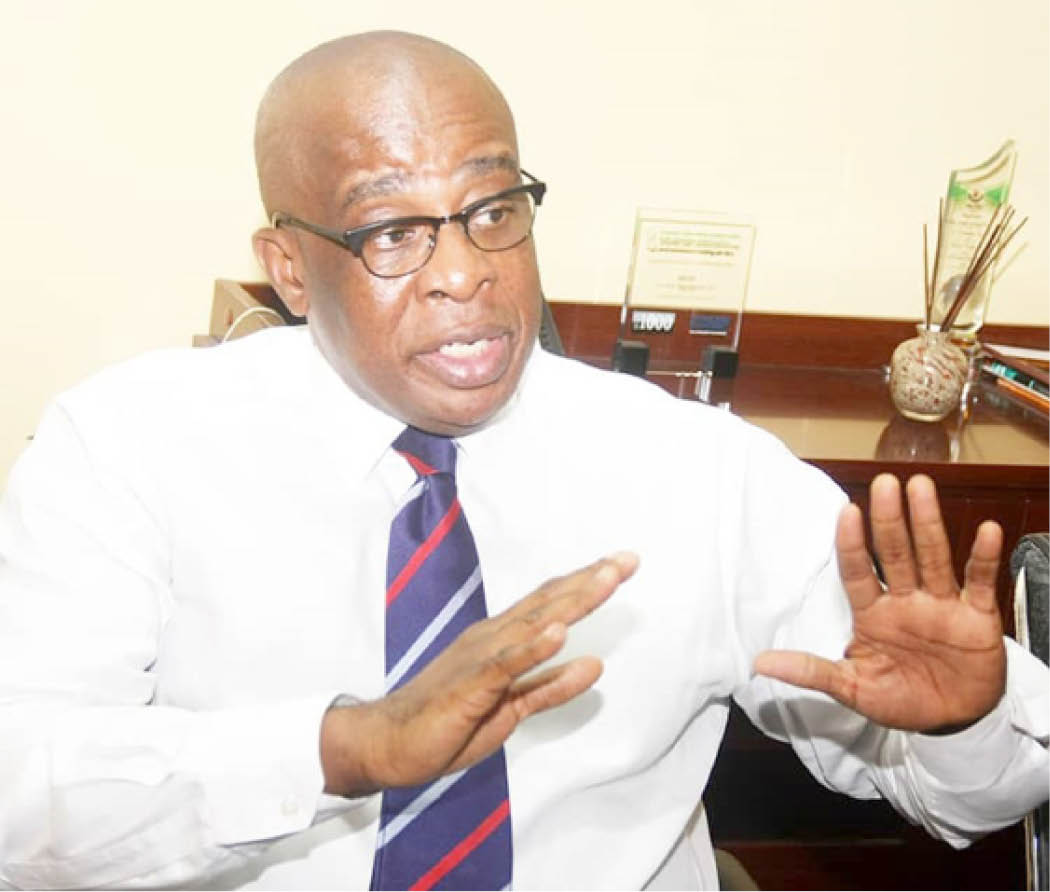Adedapo Osariuyime Tunde-Olowu was called to the Bar in 1988. He has extensive experience in commercial litigation and arbitration. He was appointed a Notary Public in 2006 and has remained a regular contributor to the growth and development of the Nigerian Bar Association at his branch level. In this interview, he speaks about conflicting judgments, Covid-19, the Aviation Law Report in Nigeria (AVLRN) and sundry issues
In what ways would COVID-19 impact the legal profession?
COVID-19 has literally brought life and business, as we know it to a grinding halt. The human race is battling to save itself from an existential threat of epic proportions. Various governments have taken drastic measures with a view to check spread of the deadly virus.
On 29 March 2020, in an address to the nation, President Buhari announced the cessation of all movements in Lagos State, Ogun State and the FCT for an initial period of 14 days with effect from 11 pm on Monday, 30 March 2020. The President also directed citizens in these areas to stay at home and directed that travels to the aforementioned States be postponed. He also directed that all businesses and offices within these locations should be closed during this period.
As a result of the President’s announcement, many law firms have shut down their offices and are now working remotely. The courts are virtually shut. The pandemic and the resulting governmental response have adversely affected the operations of businesses. Production has been impacted adversely and supply chains and markets are in disarray. The global economy is receiving a severe battering. Lawyers are not immune from these effects. For some lawyers, this will result in unemployment. So, overall, COVID-19 is a monumental and unprecedented disruption to the global economy and we can only hope that this nightmare blows away soon.
What are your suggestions for dealing with the issue of conflicting judgments of our courts?
We operate a common law system, where the principle of stare decisis applies. Stare decisis refers to the doctrine of precedent, which obliges judges to decide cases in accordance with previous decisions by a superior court in similar cases. The rationale for stare decisis is to ensure consistency and predictability in our jurisprudence. Conflicting judgments present a challenge to the administration of justice because it introduces uncertainty.
Our courts must set up comprehensive databases of all their judgments. For example, in the past, in Lagos State, we used to have the Cyclostyled Copies of the Judgment of the High Court (CCHCJ), which covered judgments of the High Court of Lagos State. We also used to have the Federal High Court of Nigeria Law Reports. With technological advancements, it is easier to set up these databases of judgments. With this in place, it will be easy for judges to leverage the technology necessary to keep track of new judgments.
More importantly, lawyers are ministers in the temple of justice. Lawyers have a duty to the court and the administration of justice is paramount. A lawyer cannot under any circumstances misstate or misrepresent the law. He has a duty to disclose all the decisions relevant to his case. It does not matter if the decisions strengthen or weaken his case. It is irrelevant that opposing counsel is unaware of such decisions and has not relied on them. Judges are human and are neither omniscient nor infallible. Judges rely on the submissions of lawyers appearing before them.
How would the present closure of Nigeria’s domestic and international airports affect the Nigerian aviation sector?
As you are aware, there is no domestic and international passenger traffic with the closure of the airports. Aircrafts are lying idle on airport tarmacs. Pilots, cabin crews, ticketing, catering staff, and air traffic controller have suddenly become redundant. Certainly, these disruptions will result in severe losses for domestic and international carriers. Globally, governments will also lose significant revenue that would have accrued from this critical sector. Expectedly, there will be direct and indirect job losses across the air transport value chain. There is a report in today’s edition of The Guardian that Nigeria may slide into a recession if this shutdown continues for another two months with a potential loss of N2.27 trillion worth of trade and significant unemployment across all sectors. The forecast for the global economy is grim.
What is your take about the future of the practice of aviation law in Nigeria?
According to a report by the International Air Transport Association (IATA), 7.2 billion passengers are expected to travel in 2035, a near doubling of the 3.8 billion air travellers in 2016. The prediction is based on a 3.7% annual Compound Average Growth Rate (CAGR) noted in the release of the latest update to the association’s 20-Year Air Passenger Forecast.
Nigeria is a player in this global industry, and our population and market size place us in a vantage position. With the flurry of activities in this key sector comes a demand for the services of lawyers. Lawyers in this practice area will continue to play a key role in providing guidance to investors and government on the legal and regulatory aspects of aviation business.
Why have you chosen to report judgments in a particular practice area?
In the course of my over 30 years as a lawyer, I discovered gaps in law reporting of court decisions in certain practice areas, notable among which are aviation and intellectual property. This discovery and my passion to contribute my little quota to the development of Nigeria’s legal system motivated me to embark on this project, starting first with aviation. We are presently working on a report covering decisions in intellectual property.
We decided to begin with aviation because it is one of the key sectors of the Nigerian economy. It is reported that the aviation sector contributes about $10 billion to Nigeria’s GDP. Aviation provides an efficient and rapid worldwide transportation network, making it essential for global business. It generates economic growth, creates jobs, and facilitates international trade and tourism.
Why do you think the AVLRN is unique bearing in mind the fact that there are several other law reports in circulation in Nigeria?
The AVLRN is remarkably different from the existing law reports. The format and print quality are unique. The report covers decisions of the superior courts of records in Nigeria (i.e. the Federal High Court, the Court of Appeal and the Supreme Court). This means we are able to provide all actors/stakeholders in the aviation sector (including the bar and the bench, academia and government agencies) with a comprehensive and authoritative reference material. This makes the AVLRN unique. But beyond this, we are tech-minded and innovative. In this light, one of our plans is to roll out an e-version of the AVLRN in order to give our readers access to these decisions anywhere in the world.

 Join Daily Trust WhatsApp Community For Quick Access To News and Happenings Around You.
Join Daily Trust WhatsApp Community For Quick Access To News and Happenings Around You.


